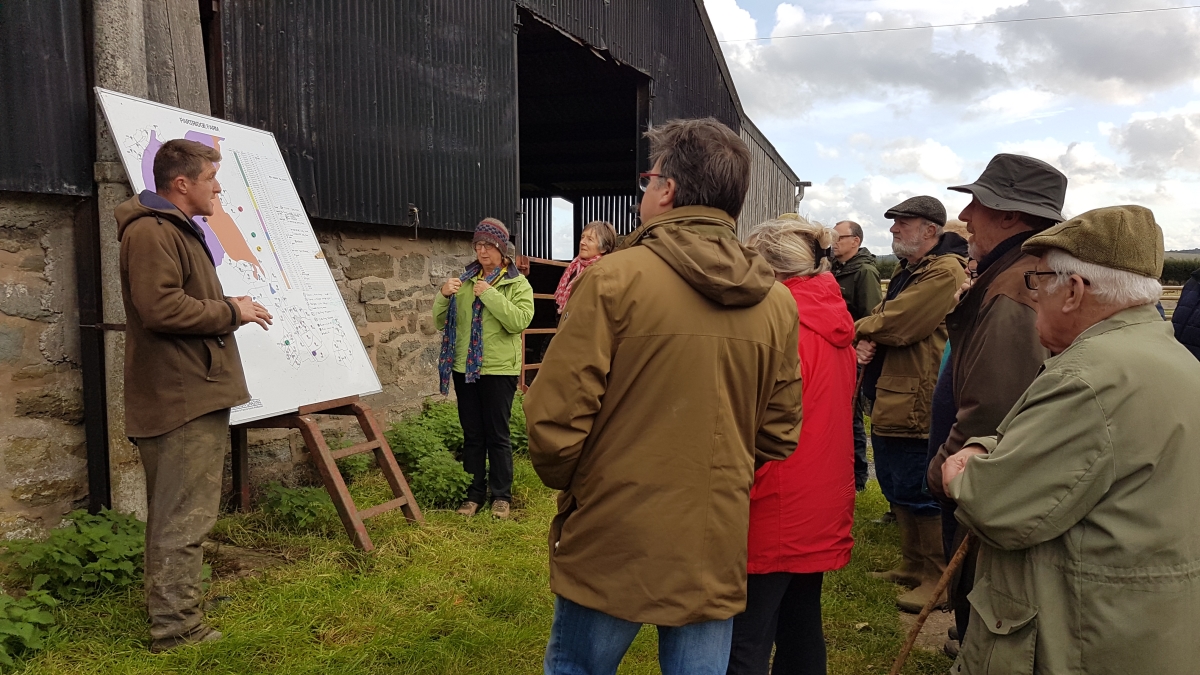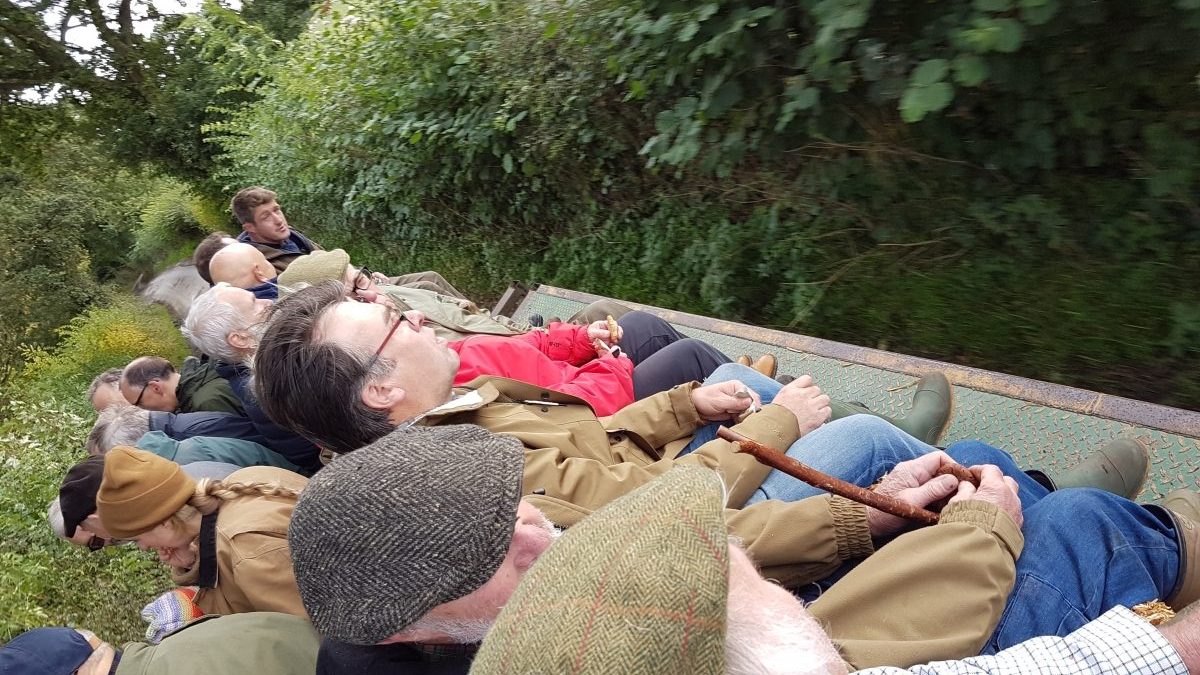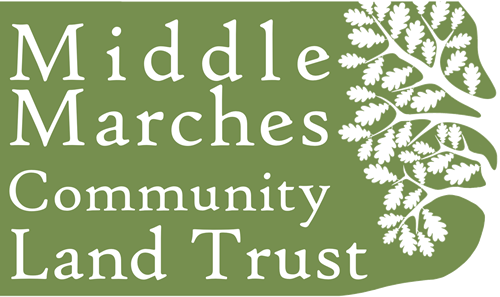Farm Walk at Partridge Farm
On Wednesday 9th October, we spent a wonderful afternoon at Partridge Farm with James Evans learning about his organic beef and sheep farm. James introduced the event by explaining how he started out as a traditional farmer and after a new owner took on the Linley Estate and announced he wanted to go organic, had to change his direction of travel.

Initially, James did not like the sound of going organic. He was, similar to many other farmers, focused on maximising production to maximise profits. The thought of reducing stock numbers and producing less worried James as he assumed it would result in a lower income.
It is also scary to drastically change what you’re doing. It is easy to feel comfortable with what you know and unsurprising that many people are reluctant to venture out of their comfort zones. Furthermore, there isn’t a back-up plan if things go wrong. Farmers don’t get paid by anyone else, they are dependant on what they produce to make a living.
James is fortunate in the way that he likes to be different, is a risk taker and isn’t afraid to jump in the deep-end. These are invaluable traits to have when a challenge like this lands on your shoulders. We are very lucky to have had the opportunity to learn from James as, evidently, we all need to start doing things differently.
It is becoming clear that traditional farming is not sustainable. We know that the focus on farming is moving away from the stock and onto the land. We therefore need to move with this change and take advantage of other financial support available. There is an opportunity with the new Environmental Land Management Scheme for it to be farmer-led and work to complement farm businesses rather than to be seen as an additional burden.
We also need to learn how to value the ‘natural capital’ we hold. James explained that he now sees healthy soil as money in the bank. He said, “If we have another year like last year [i.e. dry], we can accept that we’re not going to put as much back in the soil but we already have retained moisture and soil fertility [from the previous year when it was wetter].” Income doesn’t always have to mean money, it’s about looking at it in another way.
Following our discussion in the farmyard, we climbed aboard James’ trailer and went to see one of his groups of cattle that are being grazed on a rotational basis.

Trailer ride to see the cows – Alton Towers eat your heart out!
The field is divided into smaller paddocks, where the cattle spend 2-3 days and then move onto the next section. Before he used this system, the cows would have free roam of the field. In this setup, what would happen is the cows would eat what they liked and then would go back to graze the re-shoots when they came through a few days later. The problem with this is that it sapps all the energy out of the grass plants and hinders grass growth throughout the year. James explained, “By using a rotation system, you’re maximising grass growth by giving it rest. The cows stay in one paddock for 2-3 days and then move on. Then it’s 30 days before they go back to the first paddock.” This is allowing James to sustain high stocking rates. They can run 80 cows and calves on 70 acres for 9 months of the year.
It was a great pleasure to spend the afternoon with James and to see the benefits he is reaping first-hand. James shares his story openly; he knows he doesn’t have all the answers and does not always achieve the results he wants, but he has embraced this learning curve and is, overall, delivering excellent results.
To James and the owners, James and Dianna Moores, a huge thank you from everyone at Middle Marches. We are extremely grateful for your time!
Just some cows grazing grass and flowers storing carbon in our soil! By James Evans, 24th August 2019
Conversations continued to flow in the pub following our afternoon with James and some exciting ideas transpired. These included, but were certainly not limited to, Middle Marches identifying local markets for farmers to sell their produce to and using mapping technology to measure how landscapes change over time.
We’ll be raising these ideas at future public meetings for further discussion, so please do keep an eye out for our updates! If you’re not on our mailing list but would like to hear from us, please click the button below to sign up.
Sign Up To Our Mailing List
We will only use your information to contact you about our latest news and upcoming events, and other ways to get involved with Middle Marches Community Land Trust.
Read our Privacy Policy for more information.
